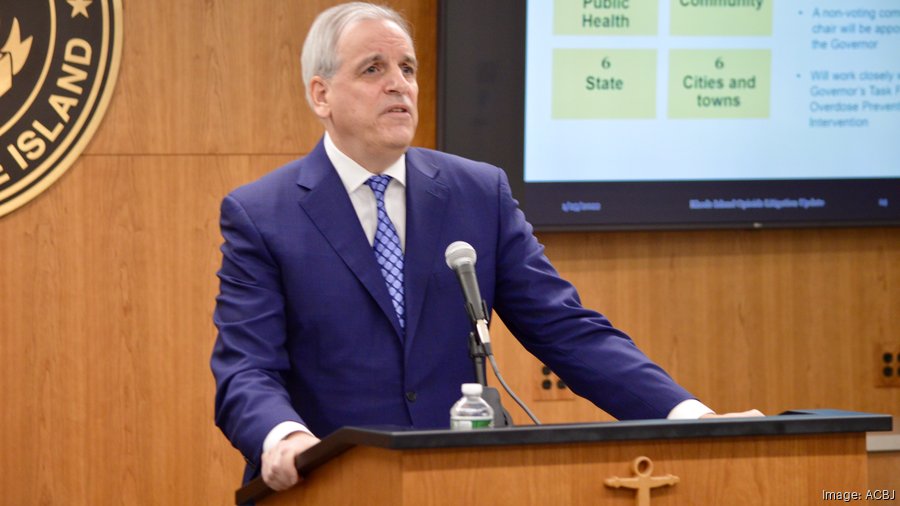Rhode Island has reached a $21 million settlement agreement with drug manufacturer Johnson & Johnson and a $91 million agreement with three pharmaceutical distributors to settle claims that the companies profited from the opioid epidemic.
The settlement with Conshohocken-based AmerisourceBergen Corp. (NYSE: ABC) McKesson Corp (NYSE: MCK), Cardinal Health Inc. (NYSE: CAH) ensures that Rhode Island will benefit outside of any national settlement, Attorney General Peter Neronha said Tuesday. In July, the same distributors reached an agreement with 45 other states, but Rhode Island chose to chart its own path.
Neronha said the state-crafted pact is preferable because it will deliver initial funding almost immediately. He said it will also retrieve millions in additional funds to cover the costs of litigation. Payments from the distributors will be disbursed over 18 years. The separate Johnson & Johnson settlement will be spread out over 9 years.
Neronha said the companies knowingly prioritized profits over safety.
"You can make all the money you want, as long as you are doing it the right way," he remarked. "When you endanger lives, and you know you're endangering them, and you do nothing to stop it, that's not good corporate behavior."
Under the arrangement, 80% of the recovered monies from the distributors and Johnson & Johnson (NYSE: JNJ) will fund statewide programs. The allocations will be informed by an advisory committee to be comprised of public health experts, municipal representatives and others. The committee will make recommendations to EOHHS, and the spending must go through the state's appropriations process.
The remaining 20% will be in the form of direct payments to each of the state's municipalities, using a population-driven formula. Cities and towns will have discretion in setting up programs that meet local needs, but the money must be spent exclusively on opioid abatement, including overdose rescue and recovery.
The attorney general's office negotiated the settlement with the Office of Gov. Dan McKee, House and Senate leadership, the Executive Office of Health and Human Services and the state's 39 cities and towns.
Rhode Island's opioid recoveries now amount to around $114.5 million, including $21.1 million from Johnson & Johnson and $2.6 million recovered last year from the consultancy McKinsey & Co.
Neronha delivered a recap of the state's opioid litigation to date.
In 2018, the Rhode Island Attorney General sued a group of opioid distributors and manufacturers, alleging they helped fuel the state's opioid crisis. That same year, dozens of municipalities filed their own lawsuit to ensure they received direct funding. The settlement announced today required complex negotiation to reconcile the two lawsuits, Neronha said.
Rhode Island's action against Purdue Pharma and members of the Sackler family remains on hold, and a case against drug manufacturer Teva Pharmaceutical Industries Ltd. is pending, Neronha said. Tel Aviv-based Teva has its North American headquarters in Parsippany, New Jersey, but has a large presence in Montgomery and Chester counties in Pennsylvania.



